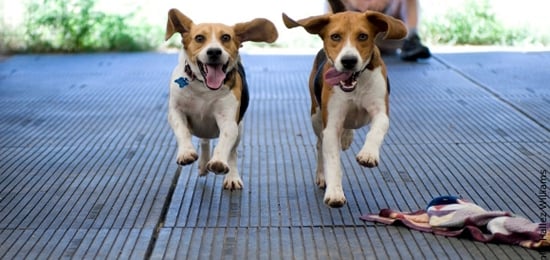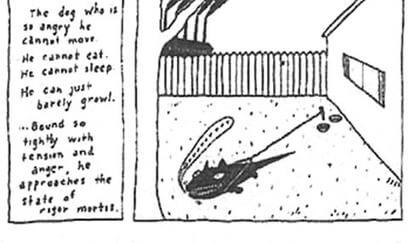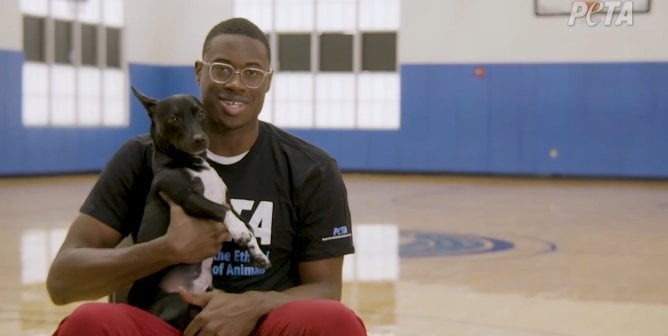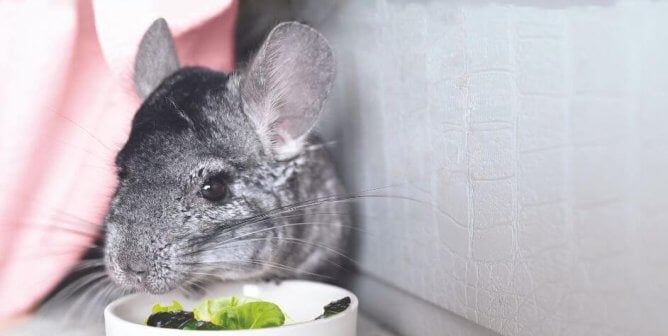“The reason I love my dog so much is because when I come home, he’s the only one in the world who treats me like I’m the Beatles.”
–Bill Maher, Comedian
Looking for tips on raising a happy, healthy pup? You’ve come to the right place.
Indoors or Out?
Dogs are pack animals—they depend on you for love and protection, so keep them inside, take them for walks, and make them a part of your family.
Dogs left unattended in their own yards, even for a few minutes, have been stolen, poisoned, and beaten. They can suffer from stress and loneliness, heatstroke in the summer, and frostbite, hypothermia, and dehydration in the winter.
Because of the danger and cruelty that it poses, several communities have banned the chaining of dogs. Chained dogs kill as many children as do firearms, and they kill more than falls from trees, playground equipment, and fireworks accidents put together.
Training
You and your dogs speak different languages. Humane, interactive training gives dogs greater freedom and a better understanding of our world. Untrained dogs are often punished for their “improper” behavior. Be the one to train your dog—you are the one who will need to know how to communicate with him or her—but get help from a humane dog trainer if you run into problems.
For more tips on how to train your canine companion humanely, check out PETA’s Four “P’s” of Training. For solving dog behavioral problems, If Only They Could Speak, Dogs Behaving Badly, and The Dog Who Loved Too Much, all by Nicholas Dodman, are excellent. For books on the negative effects of crating, check out Dogs Hate Crates and Dog in a Box, both by Ray and Emma Lincoln.
Housetraining and Walking Schedules
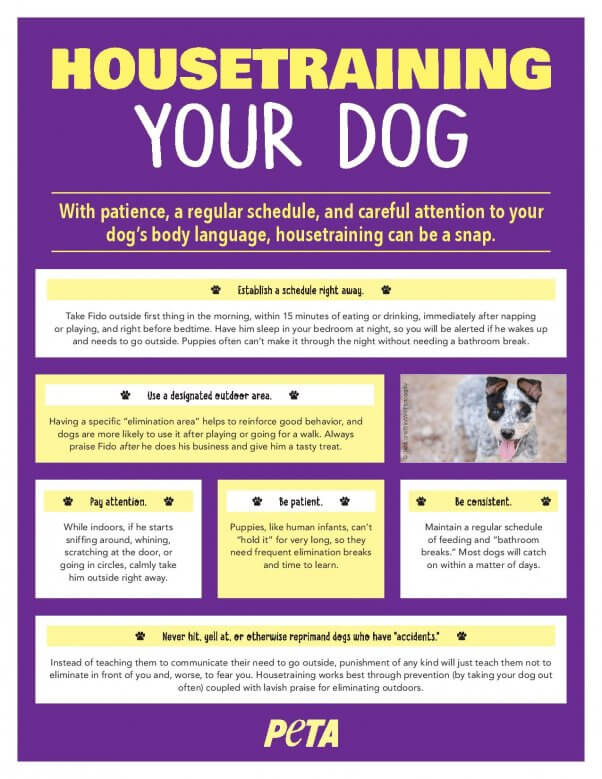
Puppies should be taken out at least once every two hours (or within a half hour after eating or drinking) and guided to the same spot where they can smell having relieved themselves before. Immediately after they “do their business,” they should be praised lavishly in a high-pitched, excited voice. Crate training does not speed up the housebreaking process: Puppies do not develop full bladder control before 6 months of age and are physically incapable of “holding it” for very long.
Take your adult pooch out at least four times a day and allow him or her time to linger and smell the fire hydrants. If you can’t go home at lunchtime, enlist the help of a neighbor or professional dog-walker.
Crating has recently become a popular practice often used on adult dogs by people who say that they are protecting their dogs. Often, however, it will turn out that the true reason for crating is to protect furniture or simply because it’s convenient. But this practice deprives dogs of basic necessities, such as the freedom to walk around and look out the window, the opportunity to relieve themselves, and the comfort of stretching out.
Leashes and Harnesses
Dogs are safest and most comfortable wearing a nylon harness, not a collar, when out walking. Choke and prong collars can be painful and injure your dog. For a dog who pulls too hard, try the Easy-Walk™ harness (available online), which discourages pulling without discomfort to the dog.
Socialization and Security
Animals get depressed if deprived of adequate social interaction, so let them “chat” and play with other dogs on walks and at parks. A happy dog’s life is not one long series of commands: Let them live a little, make choices, and take their time. Animals are very sensitive and can become easily frightened, so speak softly to dogs. Don’t fight or shout in their presence, and give them their own hiding places to dash into when they want to be alone.
Veterinary Care
Sterilizing dogs helps stem the tide of companion-animal overpopulation. Spaying female dogs reduces the stress and discomfort endured during heat periods, eliminates the risk of uterine cancer, and greatly reduces the risk of mammary cancer. Neutering makes male dogs much less likely to roam or fight and prevents testicular cancer.
Never wait to take your dog to a veterinarian if there is any sign of illness or injury, but don’t leave your dog with the vet for any longer than absolutely necessary or allow the vet to refuse to let you see him or her upon request.
Feeding
If you have been feeding your dog commercial pet foods, you may be jeopardizing his or her health. Cheap, supermarket pet foods are often composed of ground-up parts of animals deemed by Agriculture Department inspectors unfit for human consumption. Many guardians feed healthful, meatless diets to their dogs.
Feed dogs first, before you eat. To keep dogs from begging at the dinner table, teach them the simple phrase “All done!” (You must be consistent with this—absolutely no more food can be given after saying the phrase, or the meaning will be lost.) After they understand “All done!” you will be able to feed your dogs something from the table without becoming the target of any begging after you stop.
Traveling
Take care to keep your dog safe in the car: Even on a 78°F day, the temperature inside a shaded car is 90°F, while the inside of a car parked in the sun can reach 160°F in minutes. Animals don’t perspire as we do and can quickly succumb to heatstroke
Countless animals are killed, injured, or lost on commercial flights each year. Temperatures can become extremely hot or cold in airplane cargo holds, and the noise is deafening
Kennels can be stressful and scary and even harbor disease. Travelers should have a trusted friend or relative look after their dogs at home, where they’ll be the most comfortable.
Text VEG to 73822 to get the latest vegan lifestyle tips, recipes, and urgent action alerts texted right to your phone.
Terms for automated texts/calls from PETA: https://peta.vg/txt. Text STOP to end, HELP for more info. Msg/data rates may apply. U.S. only.

